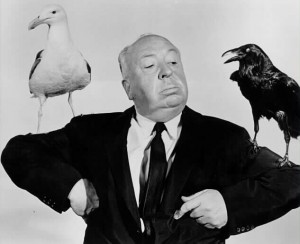Dues. Gotta pay your dues to sing the blues.
The lead character must pay dues. Is that true?
Sympathy = Punishing Your Protagonist.
Wondering how true is the truism. It’s common for movies to beat down the protagonist. It’s not done randomly. The filmmakers want us, the audience, to react to the beat down. We’re being manipulated and the better the manipulation, the less you realize it’s happening. How to do we, the audience, respond to the character being put through hell? It may depend on the circumstances…
Let’s say a character is an abusive relationship. We’re rooting for them to escape it, sure. But what if the character could just walk out and leave? Or get a divorce? Our reaction might go from “poor girl” to “what the *&^!, why doesn’t she just split?” The sympathy factor will be less than if, say, she’s born and married to an abusive 16th Century King. She has nowhere to turn, divorce not an option. Sympathy is earned through her struggle to survive the marriage forced upon her.
What about a daughter tending to a mother dying of cancer. The daughter wants to do the right thing but the mother dumps on her, relentlessly. Many in the audience might personally relate to the daughter, having to care for elderly parents of their own. The daughter is selfless, self-sacrificing…two big-time sympathy characteristics.
I had a running list of Sympathy and Non-Sympathy traits. A character who is soft spoken, who dies a noble death, who responds to life’s beat down not with anger or cynicism, but with an almost Jesus-like ability to sacrifice one’s self for the sins of others, will always have the audience by the throat.
When it comes time to sell your script, you can bet some producer somewhere will ask why people will pony up $10+ bucks to see your movie. Who are they wanting to take a ride on, who will they root for? Eliciting sympathy isn’t done with smoke and mirrors. It’s done with craft, with storytelling. And with recognizing that your characters have to take a full journey, meaning it’s likely they will have to be beaten down. How?
- Nature or natural forces (Titanic, 2012, Twister, The Poseidon Adventure )
- An antagonist of far greater strength makes life miserable or causes death and destruction(The Devil Wears Prada, The Crow)
- War-time abuse (Schindler’s List, The Deer Hunter, Saving Private Ryan)
- Addiction (The Lost Weekend, Days Of Wine And Roses, Black Snake Moan)
- Mental or physical illness (The Miracle Worker, SlingBlade)
- A crippling or death-dealing accident (Diving Bell and the Butterfly, 21 Grams)
- Brainwashing (The Manchurian Candidate)
- Loss of job or bad economic conditions (Falling Down, The Grapes Of Wrath)
- Religious oppression (Ben Hur, The 10 Commandments, The Rapture)
Here are a few specific examples of character beat down from movies you might know:
- Breaking The Waves
I’m off Lars Van Trier. Not planning on seeing Melancholia, didn’t see AntiChrist…what’s the point? The Nazi comments at Cannes aside, this guy is all about shock and headline grabbing. Not saying he’s not talented. Breaking The Waves wrecked me. Stars Emily Watson as a simple-minded young Scottish woman who believes that God talks to her, and is instructed by her paralyzed husband (Stellan Skarsgard) to have degrading sex with oil tanker workers, until it kills her. I stumbled out of the theater after this one. If there were ever a doubt that punishing the protagonist works in drawing an audience closer, one need not go past this movie.
It was Dogville, the rape scene with Nicole Kidman, that put me off Van Trier. When my friend wanted to stay for the credit role, I stood up in the theater and screamed at him, for all to hear: “I just sat through 178 minutes of B-U-L-L-S-H-I-T, and you want to watch the &^%$! credits?!” I’m not the first one to notice the punishing of women in Van Trier movies. From the UK Telegraph:
“In von Trier’s controversial musical, Dancer in the Dark (2000), singer Björk largely escaped such physical privations. As Selma, a poverty-stricken Czech immigrant in America, she merely goes blind, murders a man using a safe deposit box and ends up being hanged.
Still, as Björk tells it, filming took a heavy emotional toll on her. She complained that von Trier was “sexist”, and declared she would never work with him again. She has been quoted as saying that he needs actresses to infuse his films with a soul – “and he envies them and hates them for it”.
Nicole Kidman was the next victim. In Dogville (2003), she played a gangster’s moll who arrives in a small, rural American town. She is perceived as an outsider, and the intolerant citizens insist she does demanding chores before submitting her to all kinds of degradation, finally forcing her to wear an iron collar with a bell and weight attached to prevent her escape. She becomes the helpless victim of the sexual whims of several men in the town.
“I don’t think I tortured Nicole on Dogville, but I know she said I was tough,” said von Trier. The two reportedly had tempestuous rows on set. And when I mentioned von Trier’s name to Kidman a year after Dogville’s release, she gave me what might be termed an old-fashioned look.”
Sure, we can scorn the director, but how do we feel about the characters? Do we pity them? Sympathize with them? If I want to elicit a response from a reader-audience member, I’d do well to study the reaction to characters in movies like this. Van Trier uses women badly in his flicks, but he wasn’t the first…
- The Birds
In fairness, the whole town gets abused by the crazy attacking birds. We focus on Mitch Brenner (Rod Taylor) and family, plus wealthy San Fransisco socialite Melanie Daniels (Tippi Hedren). Terrorized, the back end of the movie has them trapped and defending a house from the constant onslaught. Kinda a no-brainer here–of course we’re rooting for them. The movie has been studied down to the shot, as has Hitchcock’s obsession with Tippi Hedren, and his beat down of women in this and other movies.
- Gladiator
“Maximus is a powerful Roman general, loved by the people and the aging Emperor, Marcus Aurelius. Before his death, the Emperor chooses Maximus to be his heir over his own son, Commodus, and a power struggle leaves Maximus and his family condemned to death. The powerful general is unable to save his family, and his loss of will allows him to get captured and put into the Gladiator games until he dies. The only desire that fuels him now is the chance to rise to the top so that he will be able to look into the eyes of the man who will feel his revenge.”
Revenge, done well, works. Roman general Maximus (Russell Crowe) has his life ripped from him–friends, family, his Legion, even his rightful appointment as Emperor–by the crafty and ever-ambitous Commodus. We see it happen, every awful step of the way. Nothing he, or we, can do about it. Powerful guy, but it’s all taken from him.We sympathize and root for him to give Joaquin Phoenix, and that freaking annoying scar of his, what for.




